Home> Company News> Five Things To Consider Before Buying Hydraulic Pump Sets
- AddressNo.9088 SHAHEXI ROAD, NANSHAN DISTRICT,SHENZHEN,CHINA
- Factory AddressNo.9088 SHAHEXI ROAD, NANSHAN DISTRICT,SHENZHEN,CHINA
- Worktime9:00-18:00
- Phone(Working Time)0531-85064681
- Phone(Nonworking Time)0531-85064681
- Fax0531-85064681
Hydraulic pump sets have become an integral part of many industries worldwide. They are used in production lines and in a variety of applications such as construction, mining, agriculture and many more. Hydraulic pump sets are key components for machines like forklifts, cranes, excavators and other industrial equipment that require high pressure pumping. When it comes to choosing the best hydraulic pump set for your project or use case, there are many factors that need to be considered before making a purchase decision. In this article we will look at some factors that will help you choose the right type of hydraulic pump set for your needs
How much power do you need ?
If you are thinking of buying a hydraulic pump set, it is important to consider the power required for your application. The amount of power required depends on the application. For example, if you are using your hydraulic pumps in a construction site or mining operation, then they will need more horsepower than if they were being used on an assembly line at an electronics factory.
The amount of horsepower required by any given pump is calculated using this formula: HP = CFM x 3.5
If you are looking to purchase a hydraulic pump set, then it is important to consider the power required for your application. The amount of power required depends on the application. For example, if you are using your hydraulic pumps in a construction site or mining operation, then they will need more horsepower than if they were being used on an assembly line at an electronics factory.
Which type of usage is it for?
If you are using the pump set for high pressure applications, then you should look for a hydraulic pump that has a higher pressure rating. Similarly, if your application needs to have low pressure, then get a pump with lower pressure rating.
When it comes to flow rate and volume, it is also important to consider what kind of fluid will be flowing through these pumps as well as how much time they will be used continuously or intermittently in order that they may last longer before needing maintenance or repair work done on them by qualified technicians who know how best deal with such issues so as not cause further damage during repairs.
If you are looking for a reliable pump set, then you should look at the brand and manufacturer to see how long they have been in business as well as what kind of warranty they offer on their products. You can also read customer reviews about this particular brand so that you get an idea about how satisfied those who have purchased from them were with their products and services.
What size is the pump?
The size of the pump is determined by its flow rate and pressure requirements. The flow rate is defined as the volume of fluid moved per unit time, while pressure refers to how much force there is pushing against something. For example, if you put your finger over one end of a hose and blow into it with your mouth, you'll feel air pushing against your finger from inside the hose. This air pressure causes water to come out of faucets because they have been designed so that as soon as there's enough force pushing against them--in other words, when there's enough pressure--they will release water automatically without needing anyone at home or elsewhere nearby turning them on manually every day!
So how does this relate back around again? Well let me explain further: say we want our hydraulic pump set (which consists mainly just two parts: one part pumps while another receives) sized correctly so that we don't waste money getting something too big/small or vice versa...then all we need do firstly determine how much water needs moving through pipes simultaneously during normal usage conditions such as cleaning floors etcetera; secondly calculate how many gallons per minute (gpm) each individual component should produce given those conditions; finally multiply these two factors together since both sides must match perfectly before purchasing anything else besides maybe some connectors depending upon type used which would cost less than $10 total usually if bought separately instead buying pre-made sets which usually run $150-$200 range depending upon quality level chosen.
This is how we determine the amount of water flow needed for our system, but how do we know what size pump is required to achieve that flow? Well this is where things get a little more complicated since there are so many different types out there and not all of them are created equally as far as effectiveness goes!
A hydraulic pump set is more than just a pump.
A hydraulic pump set is more than just a pump. It's an engine that drives all of your hydraulic equipment, so you want to choose one that will be reliable and last for years. When choosing the right pump set for your application, there are several things to consider:
-
What size do I need?
-
How much horsepower do I need?
-
What type of drive system should I use (gear or direct)?
Here are some other important points:
-The type of fluid you will be pumping: Will it be water, chemicals, or something else? -What is the temperature that you need to pump at? -How much pressure do I need to run my system?
-How much air flow do I need? -What kind of media will I be pumping? Do I need a self-priming pump or not?
The required flow rate
The flow rate is the amount of fluid that flows through a pump in a given time. It depends on several factors, such as:
-
Type of pump
-
Oil pressure (if applicable)
-
Size and design of your hydraulic system
The amount of fluid that flows through your hydraulic system is one of the most important aspects of its performance. The amount of flow in a system depends on several factors, such as:
The required oil pressure
The required oil pressure is the force with which the oil is pushed out of the pump. The required oil pressure depends on many factors, including:
-
The application
-
The type of system (closed or open)
-
Type of pump used
The type of fluid being pumped (hydraulic, lubricating or high-pressure) To calculate the required oil pressure, multiply the weight of the object by its distance from Earth’s surface and divide that number by 100. The answer will be in units of pounds per square inch (psi).
The type of system.
The type of system will determine the type of pump you need. For example, if your application is open circuit, a centrifugal pump would be an ideal choice. On the other hand, if it's closed circuit and requires high flow rates at low pressure levels (i.e., high GPM), then a positive displacement pump may be best suited for your needs.
Pumps are usually selected based on the system's flow rate and pressure requirements as well as how much power is available for their operation.
There are many types of pumps, including centrifugal and positive displacement. Each type has its own advantages and disadvantages depending on the application.
There are many types of pumps available for industrial applications, including centrifugal and positive displacement. Each type has its own advantages and disadvantages depending on the application. For example, if your application is open circuit, a centrifugal pump would be an ideal choice.
The budget.
Before you buy a hydraulic pump set, it's important to consider the total cost of ownership. This includes:
-
Cost of the pump set itself (including installation and maintenance).
-
Cost of replacement parts and training if necessary.
-
Insurance costs, if required by your state or employer.
Maintenance costs, including the cost of oil and filters. Cost of fuel to operate the pump set.
The total cost of ownership will vary depending on a number of factors, including: The size and type of pump set you purchase. Whether or not you have to renew your license every year (or every two years). How often you use the pump set. Where you live—if it’s an area prone to flooding, for example, then you may have higher insurance costs than someone who lives in a more stable area.
The reputation/reliability of the supplier.
When you are buying hydraulic pump sets, consider the reputation and reliability of the supplier.
Ask for references and check them out. Ask to see a demonstration of their products or services, if possible. If they are unwilling to provide this information, it may be due to something negative about their business practices that they don't want you knowing about!
Make sure to ask about the warranty on the hydraulic pump sets you're considering, as well as any other equipment that may be included in the package. If possible, get a copy of this information to review later.
Understand the exact requirements before choosing a hydraulic pump set
Before you buy a hydraulic pump set, it is important that you understand the exact requirements of your system. The type of system and budget that you have will determine how much money should be spent on a hydraulic pump set.
A good supplier can help with this process by providing advice about what kind of pumps are best for your particular application. It is also important to consider whether or not there are any specific requirements like flow rate and oil pressure that need to be met by each component in order for them to work together as intended.
If you aren’t sure where to start, a good supplier can help you get started by providing advice about what kind of pumps are best for your particular application. They can also provide guidance on how much money should be spent on a hydraulic pump set and how it should be used in order for it to work properly with other components.
Conclusion
Hydraulic pump sets can be a great investment if you know what you're doing. However, if not then it could end up costing you more money than expected or even worse damaging your equipment. So before choosing one make sure that you understand exactly what type of system would suit your needs best!


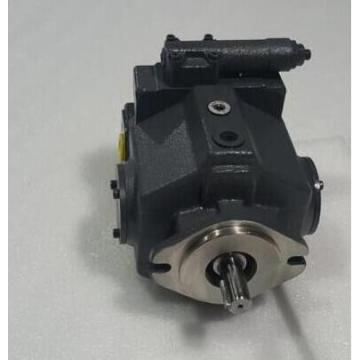 KAWASAKI K3V63DT PISTONS
KAWASAKI K3V63DT PISTONS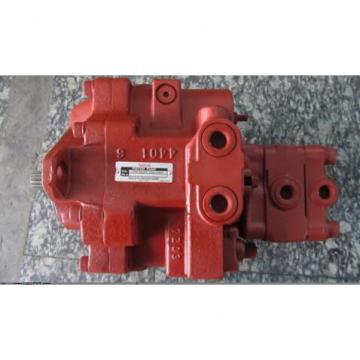 KAWASAKI K3V112DT CYLINDER BLOCK AND R.H. PLATE
KAWASAKI K3V112DT CYLINDER BLOCK AND R.H. PLATE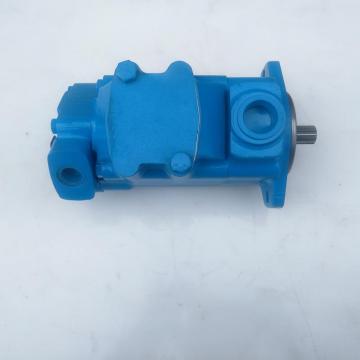 KAWASAKI K3V140DT SHOE PLATE FOR HYDRAULIC OR HYDROSTATIC EXCAVATOR
KAWASAKI K3V140DT SHOE PLATE FOR HYDRAULIC OR HYDROSTATIC EXCAVATOR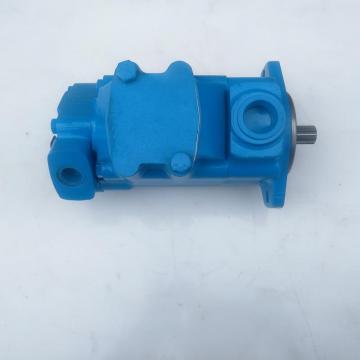 KAWASAKI K3V140DT RIGHT HAND ROTATING GROUP FOR HYDRAULIC EXCAVATOR
KAWASAKI K3V140DT RIGHT HAND ROTATING GROUP FOR HYDRAULIC EXCAVATOR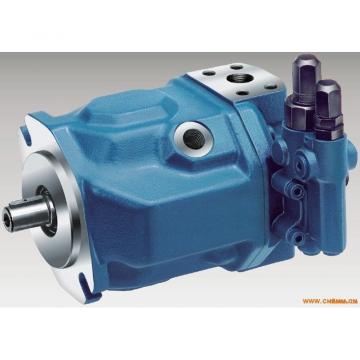 KAWASAKI K3V63DT CYLINDER BLOCK AND L.H. PLATE FOR HYDRAULIC EXCAVATOR
KAWASAKI K3V63DT CYLINDER BLOCK AND L.H. PLATE FOR HYDRAULIC EXCAVATOR